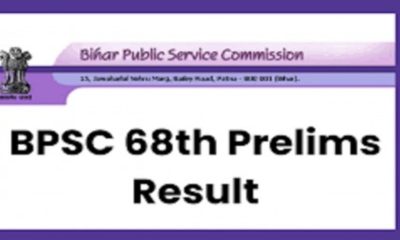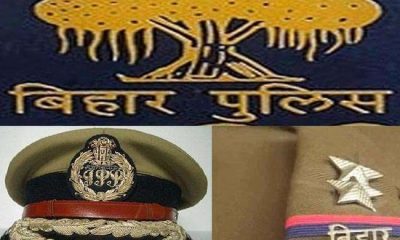Education
BPSC Head Teacher Recruitment 2022: Know exam pattern, syllabus, and complete details
Bihar Public Service Commission (BPSC) is going to conduct the BPSC Head Teacher 2022 exam in the month of September for 40,506 posts. Check salary, exam pattern, syllabus and more details.
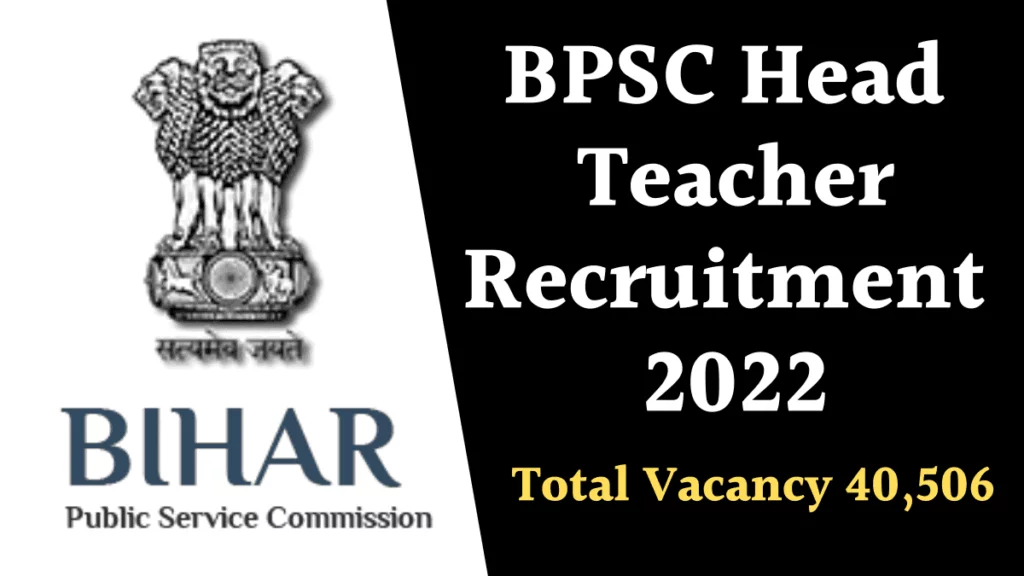
The Bihar Public Service Commission (BPSC) is going to conduct the BPSC Head Teacher 2022 exam in the month of September. There are total 40,506 posts, which are vacant. The recruitment drive is being conducted to fill all the vacancies, of which 13,761 positions are reserved for females.
There are now 13,761 positions reserved for women in the recruiting drive for the BPSC Head Teacher Recruitment 2022, to fill the vacancies.
The Bihar Public Service Commission (BPSC) has announced that the Objective Written Exam for the position of BPSC Head Teacher 2022 will now take place in September 2022, as per the latest official notification by BPSC.
BPSC Head Teacher 2022 Salary
The starting salary for the BPSC Head Teacher in 2022 will be Rs 30,500. Furthermore, according to the state government’s criteria, additional benefits and allowances such as House Rent Allowance, Dearness Allowance, and Travel Allowance will be provided to the selected applicants.
BPSC Head Teacher 2022 Exam pattern
The BPSC Head Teacher 2022 written examination will consist of 150 questions from two sections. These are:
Section I: General Studies
Section II: D.El.Ed.
Every incorrect answer will result in a 0.25 marks deduction.
BPSC Head Teacher 2022 Syllabus
Read Also: Rajasthan Police Constable Results 2022: Know website, steps to check the result
Unit 1
Understanding Childhood
Children and their childhood
Dimensions of individual development
Adolescence
Factors affecting adolescence
The contextual reality of adolescence in Bihar
Unit 2
Socialization and the context of school
Inequalities and resistances in society
The difference in learners based on socio-cultural contexts
Understanding of differently-abled learners
Methods of assessing individual differences
Unit 3
Understanding of Identity Formation
School as a site of identity formation for teachers and students
Concept and Meaning and definitions of education
Constitutional provisions on education that reflect National ideals
Education for National development
Unit 4
Philosophy and Education
Philosophical systems
Indian Thinkers
Western Thinkers
Unit 5
Meaning of equality and constitutional provisions
Prevailing nature and forms of Inequality, including dominant and minor groups and related issues
Inequality in schooling
Differential quality in schooling
Right to Education
Unit 6
Concept & Nature of Learning
Basic Assumptions and analysis of the relevance of Learning Theories Social, Cognitive & Humanistic learning theories
Learning as a process of construction of a Knowledge-Constructivist Approach to learning
Relationship of learning with school performance and ability of the learner
Concept of Motivation
Forgetting classroom learning-meaning and its causes
Meaning of learning to learn skills; ways of developing self-study
Unit 7
An analysis of teacher’s roles and functions, skills and competencies in the Pre-active phase
Characteristics associated with effective teachers
Visualizing
Decision-making on outcomes
Preparing for instruction
Preparation of a plan, Unit plan and Lesson plan
Unit 8
Motivating the learners and sustaining their attention-importance of stimulus variation and reinforcement as skills
Questioning Illustration and explanation as teacher competencies influencing student learning in the classroom
Strategy of Teaching
Approaches to Small Group and Whole Group Instruction
Unit 9
How children learn a language with special reference to Skinner, Chomsky, Piaget and Vygotsky.
The social and cultural context of language
The political context of language
Language and construction of knowledge
A critical review of Medium of Instruction
Position of Languages in India; articles 343-351, 350A
Unit 10
What are Academic Disciplines? Need/Perspectives of the classification of Human knowledge into disciplines & Subjects
The Philosophical Perspective: Unity and plurality
The Anthropological Perspective: Culture and Tribes
The Sociological Perspective: Professionalization and Division of Labour
The Historical Perspective: Evolution and Discontinuity
The Management Perspective: Market and organization
The educational Perspective: Teaching and Learning
Research in subject/discipline
What is Interdisciplinary learning?
What criteria can be used for quality assurance of interdisciplinary subiects?
Unit 11
Equity and equality in relation to caste, class, religion, ethnicity, disability and region
The paradigm shift from women’s studies to gender studies
Historical background
Gender, culture and institution
Teacher as an agent of change
Methods, Inductive deductive, lecture, discussion, multilingual, source method observation method, laboratory method, project and problem-solving method and their advantages and limitation and comparisons
Unit 12
Determinants of the curriculum at the nation or statewide level
The concept of the test, measurement, examination, appraisal, evaluation and their inter-relationships
Purpose and objectives of assessment for placement, providing feedbacks grading promotion, certification, diagnosis of learning difficulties
Reporting student’s performance- progress reports, cumulative records’ profiles and their uses, Portfolios
Concept of inclusive school infrastructure and accessibility, human resources’ attitudes to disability, whole-school approach, community-based education
Concept of health, importance, dimensions and determinants of health; Health needs of children and adolescents, including differently-abled children
Understanding peace as a Dynamic Social Reality
Developing Resources in Schools for Guidance
ICSI CS Result June 2022: Here’s how to check, direct link
EC recommends disqualification of Jharkhand CM Hemant Soren in office of profit case
Education
Super 30 founder Anand Kumar has heartwarming encounter with ex-student in USA, post goes viral
Anand Kumar shared a picture with Sandeep Chaudhary in a heartfelt post and wrote that many such incidents have happened in his life that seem like something from a film.

Anand Kumar, mathematician and founder of Super 30 had an unexpected meeting with one of his ex-students while shopping in a mall in New Jersey, USA. Kumar took to X and posted that his heartwarming encounter with Sandeep Chaudhary and said his meeting was nothing short of a filmy scene.
Anand Kumar shared a picture with Sandeep Chaudhary in a heartfelt post and wrote that many such incidents have happened in his life that seem like something from a film. He said he had come to buy some stuff for his children in a mall in New Jersey, USA. He was pleasantly surprised when he was called from behind. Anand Sir, you are here in America? The man introduced himself as Sandeep Chaudhary, his ex-student. Chaudhary came forward and touched Anand’s feet. Chaudhary also insisted on letting him pay for the stuff Anand had bought at the mall.
Sandeep Chaudhary thanked Anand Kumar for his blessings and said Today, it is because of Anand’s blessings that he had reached here. Chaudhary also dropped him off in his car at the place where Anand had been staying. Anand Kumar wrote in his post that there cannot be a more proud moment for a teacher like him than this.
The post has gone viral on social media with 256400 views till now which are only increasing. Large number of social media users, Anand Kumar fans and students commented on the social media post. One X user Pradeep Rawat said Anand Kumar has done the work of a true teacher.
One X user Aish Agarwal said the contribution made by Anand Kumar in the field of education has made Agarwal a fan of his.
One X user Kajal Singh recounted her own experience that her father was also a teacher and students used to regularly come to her house to give their respect to their teacher.
Education
IIM Ahmedabad launches two-year hybrid MBA programme for working professionals, complete details here
The MBA programme offers on-campus, face-to-face, and live interactive online sessions, designed for a seasoned cohort of participants with a minimum of three years of work experience.
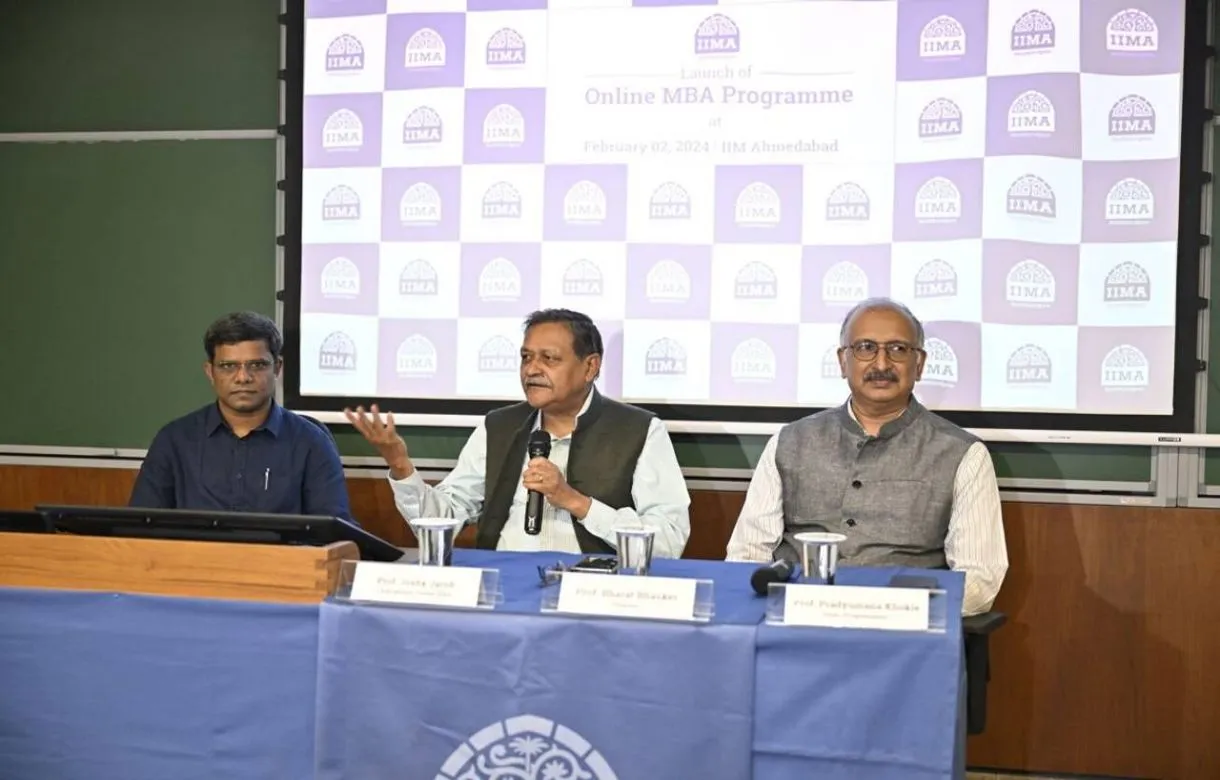
The Indian Institute of Management, Ahmedabad (IIMA), has launched a two-year Master of Business Administration (MBA) programme in hybrid mode for working professionals and entrepreneurs.
The online MBA programme in blended mode comprises, on-campus, face-to-face, and live interactive online sessions, designed for a seasoned cohort of participants with a minimum of three years of work experience.
To be considered for admission, applicants must have a bachelor’s degree or its equivalent and a minimum of three years of full-time work experience. The admission process involves an admission test (IIMA Admission Test (IAT)/ CAT/ GMAT/GRE) and a personal interview.
The programme will primarily utilise synchronous online learning, supplemented by five distinct on-campus modules. The programme emphasizes a case-based approach to provide practical learning experiences that will equip participants with the necessary knowledge and skills for success in today’s dynamic business landscape, as announced by the institute.
On the launch of the hybrid programme, the director of the institute, Professor Bharat Bhasker expressed his excitement over the launch of the new MBA programme and said the Online MBA programme will expand IIMA’s reach and provide world-class education to working professionals and entrepreneurs around the world.
This innovative program combines the flexibility of online learning with the richness of on-campus interaction, ensuring participants gain the knowledge and skills they need to succeed in their chosen careers, he added.
Professor Joshy Jacob, Chairperson of the Online MBA programme, explained the format of the program. He said that the curriculum is designed to provide participants with the necessary functional and organizational skills to succeed in a challenging world. The program aims to upskill working professionals by teaching them managerial decision-making frameworks that are rooted in human behaviour, economics, finance, and other relevant areas.
In-person classes held at IIMA focus on complex interpersonal and organizational dynamics that are difficult to master. Conversely, online sessions conducted through live classes concentrate on content that is more suitable for quantitative and systematic analysis.
Aspirants enrolling for the programme are requested to visit the official website of the institution for more details.
Education
At IIT Kharagpur convocation, President Droupadi Murmu says not a single Indian institute among Top 50 in the world
Over 3000 students received degrees during the institutes 69th convocation ceremony. President Murmu congratulated all the students and wished them best of luck for the future. The president noted that 21% of the students receiving the degrees are daughters. She wished them special congratulations.
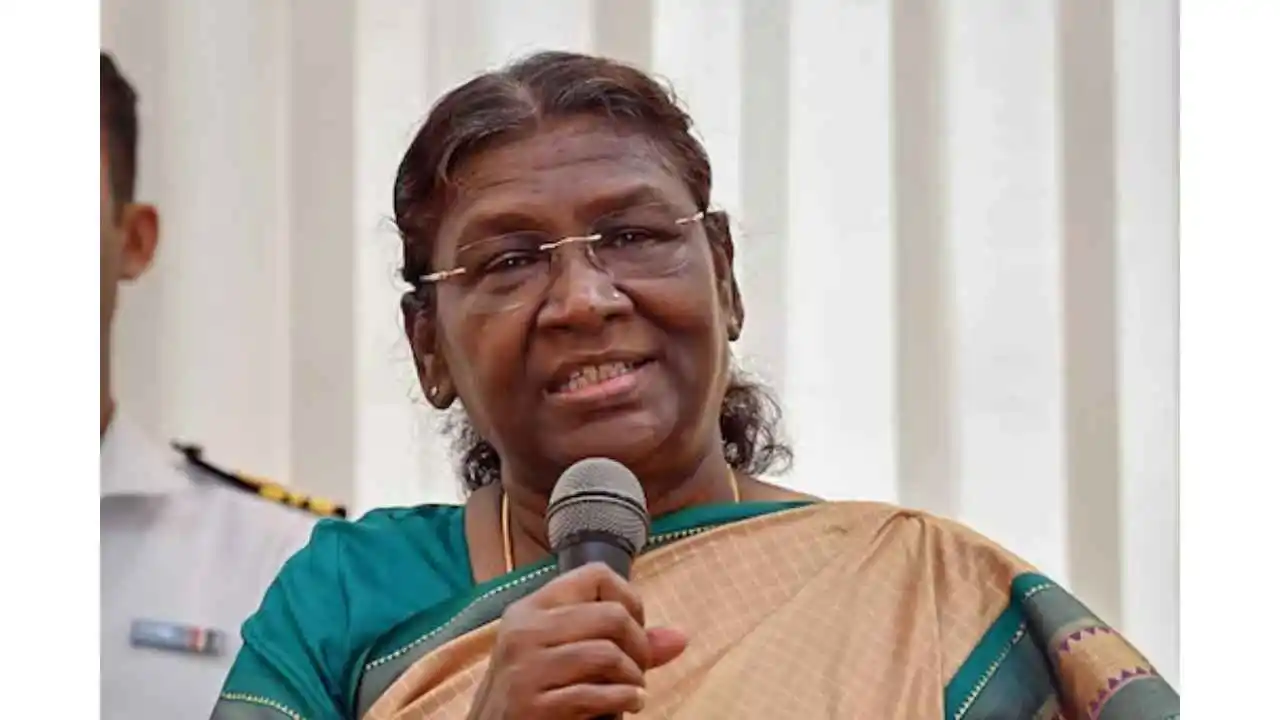
While addressing the 69th annual convocation of IIT Kharagpur, President Droupadi Murmu on Monday said there is not a single institute in the country has been able to secure a place in the top 50 educational institutions of the world and IIT Kharagpur, being the oldest IIT in the country, must work in that direction. She added that while a good ranking is not important, it helps attract top faculty from across the world and increases the reputation of the country.
President Murmu said that everyone must get access to technology. It helps lessen the gap in the society and digital payment is very good example of the same. She said technology should be used for promoting social justice and equality and should not widen the gap in the society. The President gave the example of Digital Payment System Technology is the best example of simplifying the lives of the common people.
She said today even the smallest shopkeepers are using digital payment for very small amounts. Over 3000 students received degrees during the institutes 69th convocation ceremony. President Murmu congratulated all the students and wished them best of luck for the future. The president noted that 21% of the students receiving the degrees are daughters. She wished them special congratulations.
She said she believed that greater participation of women in the field of science and technology is important for a healthy and strong society. A total of 9 students were awarded gold medals by the IIT on Monday. President Murmu said that by year 2047, the nation has set the goal of a making India a developed country. Keeping this vision mind, the government of India is moving ahead with the idea of inclusive growth. The President said the students have to make revolutionary efforts to develop and bring technology to the ground.
-
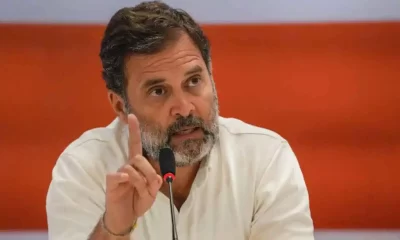
 2024 Lok Sabha Elections7 hours ago
2024 Lok Sabha Elections7 hours agoRahul Gandhi clarifies on wealth survey remark, says aim is to identify injustice
-

 Cricket news8 hours ago
Cricket news8 hours agoIPL 2024: Marcus Stoinis hits first IPL century as Lucknow Super Giants beat Chennai Super Kings by 6 wickets
-
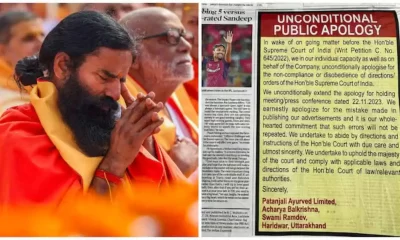
 India News6 hours ago
India News6 hours agoRamdev, Balkrishna publish bigger apology in newspapers after Supreme Court’s rap
-

 Trending5 hours ago
Trending5 hours agoA waiter’s life: Social media users go emotional on watching viral video
-
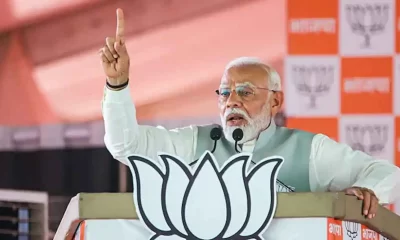
 2024 Lok Sabha Elections4 hours ago
2024 Lok Sabha Elections4 hours agoPM Narendra Modi slams Congress over Sam Pitroda’s inheritance tax remarks, accuses Congress of intending to impose higher taxes
-
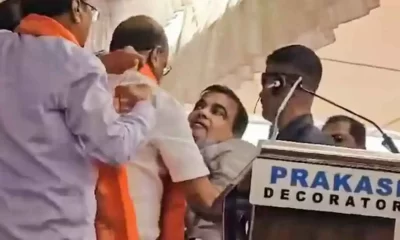
 2024 Lok Sabha Elections1 hour ago
2024 Lok Sabha Elections1 hour agoNitin Gadkari says he’s better now after collapsing at election rally in Maharashtra’s Yavatmal
-
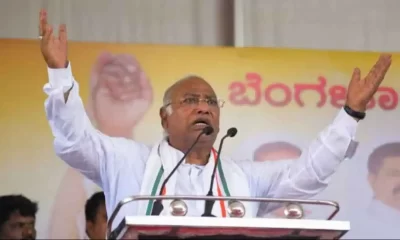
 2024 Lok Sabha Elections20 mins ago
2024 Lok Sabha Elections20 mins agoMallikarjun Kharge vows to continue politics till his last breath to defeat BJP
-

 Entertainment2 hours ago
Entertainment2 hours agoMadhuri Dixit, Karisma Kapoor recreate Dil To Pagal Hai dance battle on Dance Deewane

